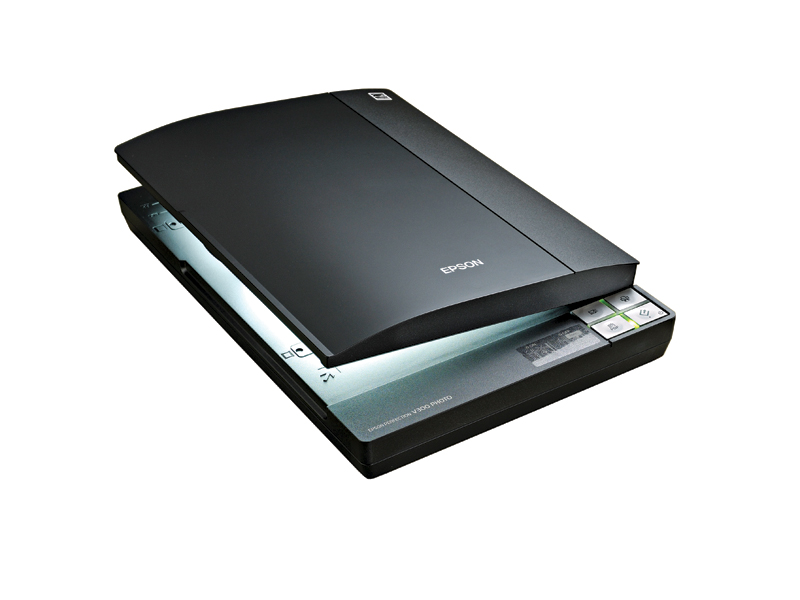TechRadar Verdict
Pros
- +
LED Lamps
- +
35mm film support
Cons
- -
Dust removal system
- -
Quality of scanned film
Why you can trust TechRadar
Offering a step up from the Contact Image Sensors (CIS) built into all-in-one printers and scanners, most self-respecting standalone photo scanners now use CCD sensors for better image quality.
Despite being more expensive to manufacture – they use a relatively complex arrangement of lenses and mirrors – scanners such as the new Epson Perfection V300 Photo boast the latest technology and still give you great value for money.
Like its more expensive V500 relative, the V300 makes use of ReadyScan LED technology, reducing its warm-up time to just one second. Reflective scanning for prints of up to 8.5x11.7 inches in size is impressively quick, with a 300dpi scan of a 6x4 inch photo taking seven seconds at the scanner's full 48-bit colour depth.
600dpi and 1,200dpi resolution scans of the same sized print take 30 seconds and a minute, respectively, with the tonal rendition, colour quality and sharpness of the results being good all round.
Film friendly
The Perfection V300 can also accept batches of four 35mm mounted slides or a strip of six 35mm film frames, each taking between one and three minutes to scan.
As well as a simple Full Auto mode, there are more advanced modes with varying degrees of sophistication, which includes a full-on Professional mode that offers a wealth of facilities for getting the best out of the scanner. With options for an Unsharp Mask, Colour Restoration, Backlight Correction, Dust Removal and Grain Reduction for film scanning, this mode is great for giving you fine control.
However, film sharpness is only average and the Dust Removal system had little effect in our film tests.
The TechRadar hive mind. The Megazord. The Voltron. When our powers combine, we become 'TECHRADAR TEAM'. You'll usually see this author name when the entire team has collaborated on a project or an article, whether that's a run-down ranking of our favorite Marvel films, or a round-up of all the coolest things we've collectively seen at annual tech shows like CES and MWC. We are one.
